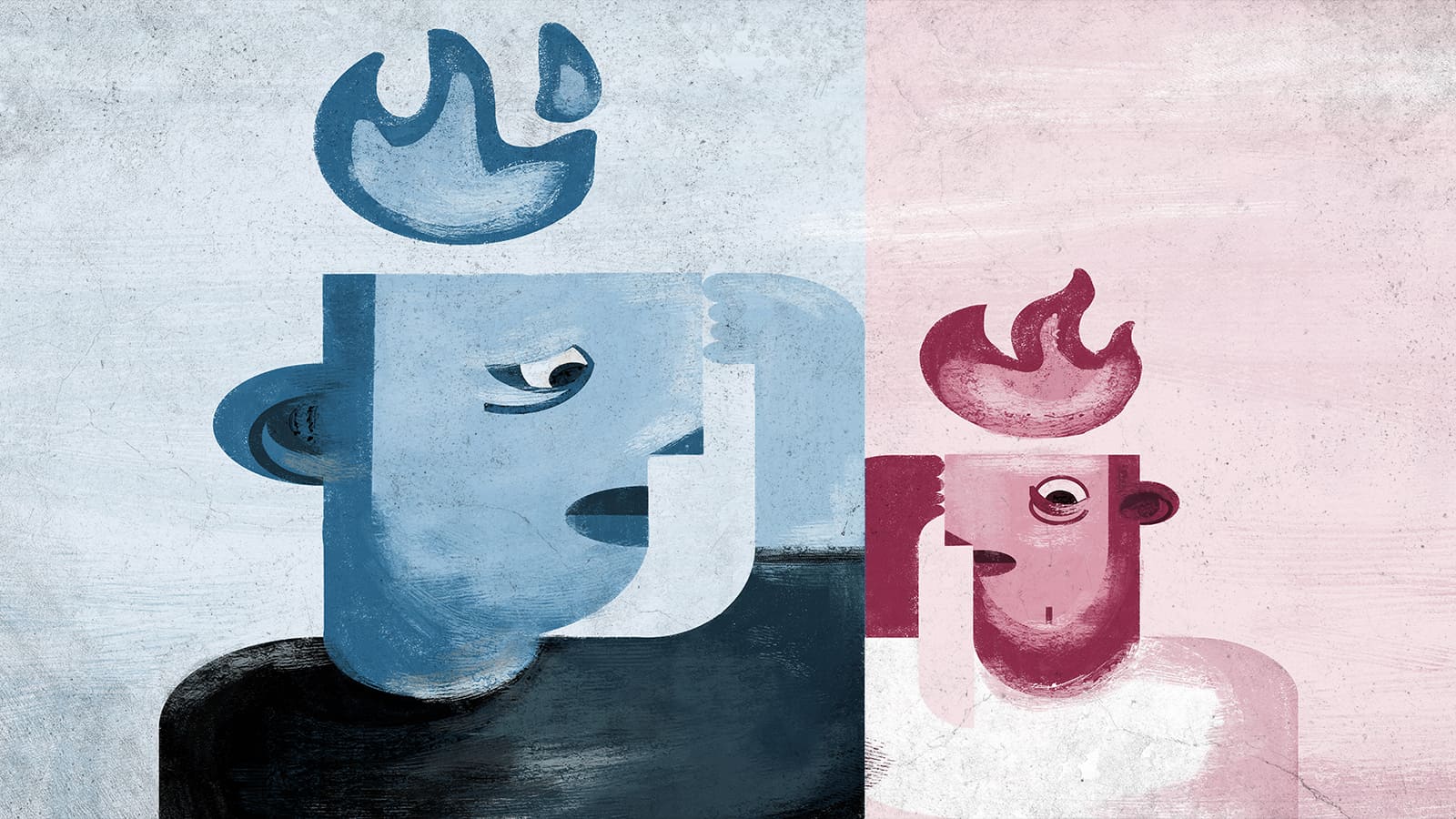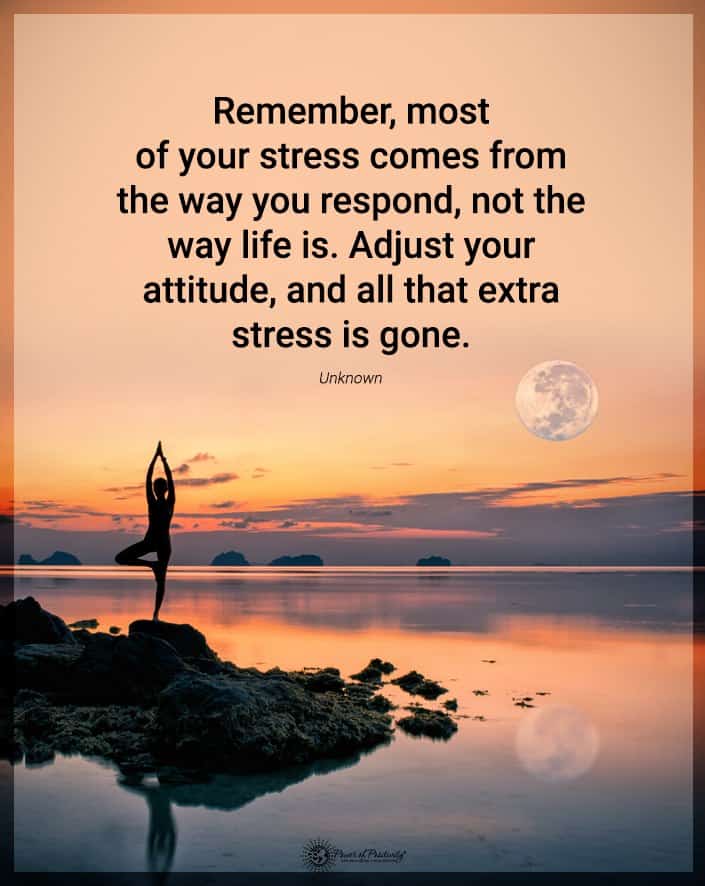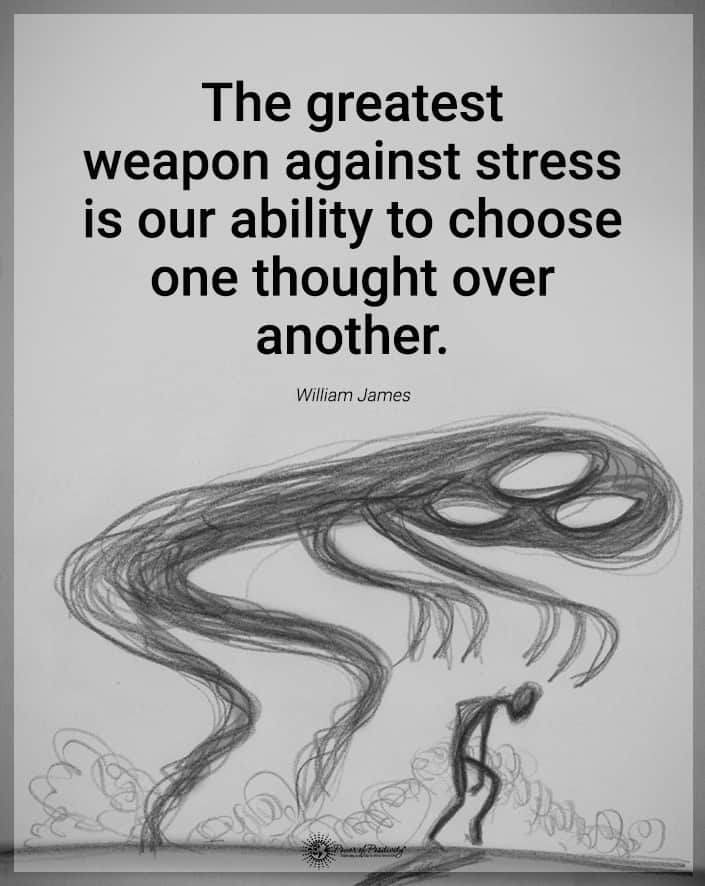Stress and anxiety are often discussed together and confused for one another. However, there is a difference between the two, and understanding whether you have stress or anxiety can help you overcome it. Understanding the distinctions can make all the difference in learning to cope appropriately.
The symptoms of stress and anxiety are similar, but there will be distinct differences. Once you learn how to tell them apart, you can find the best ways to reduce the symptoms.
A person’s background, socioeconomic status, talents, education level, or anything else doesn’t matter regarding stressful experiences. However, if it turns into persistent worry, it’s reached the point of anxiety. Identifying if you have stress or anxiety will help you alleviate the discomfort.
Before discussing the differences between stress and anxiety, it will help understand the stress response. When you experience stress, your body begins a process to help you overcome it, and it can directly affect your anxiety levels.
The Stress Response
When you experience stress, your body gives a quick surge of energy. This surge encourages you to stay and deal with the situation or escape whatever is happening, otherwise known as the fight or flight response.
Your pituitary gland releases adrenocorticotropic hormone (ACTH), which travels to the adrenal glands. Once it reaches the adrenal glands, it converts cholesterol and other things into cortisol.
The cortisol causes body chemistry changes, stimulates the release of glucose into the liver, and blocks the immune system. A secured immune system causes inflammation and red blood cell clots. Plus, the adrenal glands produce adrenaline in preparation for fighting or fleeing.
The Differences Between Stress and Anxiety
Stress occurs because of events or situations that upset your mental and physical balance. Anxiety is different because it’s based on internal factors influencing your reaction. The easiest way to remember the difference is that stress results from events, while anxiety occurs because of the body’s response to stress.
Once stress occurs, it triggers anxiety in some people and causes worry, fear, emotional and physical symptoms, hypervigilance, and avoidance. However, stress doesn’t trigger anxiety for everyone. Everyone experiences stress, but pressure doesn’t affect all people.
A significant difference between stress and anxiety is that anxiety is a mental disorder, but stress isn’t. Stress occurs when a task seems to be more than a person can handle. On the other hand, anxiety is intense and occurs when stress isn’t managed appropriately.
Stress
Stress occurs when identifiable external factors affect your life. This stimulus could be a looming deadline, a job joss with overdue bills, or simply navigating your way through a rough day. Anytime demands seem too high, it will cause you to feel stressed and overwhelmed.
Juggling multiple roles such as being an employee, a parent, and a spouse can leave you feeling frazzled. Likewise, never-ending to-do lists and multitasking do nothing to make your life any easier. It creates stress, but not necessarily anxiety.
Stress isn’t an enjoyable experience, but it is your body’s natural and healthy response to an ongoing situation. Your body works to warn and protect you from unpleasant or unknown situations.
Some of the symptoms include:
- Increased irritability
- Disruptions to your sleep pattern
- Lower energy levels
- Breath and heart rate changes
- Frequent headaches
- Appetite changes or sudden cravings
- An intense feeling of overwhelm
- A constant sense of urgency
Anxiety
Anxiety is how your body reacts to stress when not addressed or recognized. It comes from internal factors that linger even after the stimulus is gone, and it’s hard to shake the unpleasant feeling. Your body will stay in fight or flight mode, waiting for something terrible to occur.
You can learn to manage anxiety when you know what you’re dealing with. Learn to identify the triggers because they can be debilitating. Some symptoms of anxiety include:
- Feeling restless or tense without an identifiable reason
- Constant nervousness
- Racing thoughts, often about the past or future
- Avoidant behavior
- Easily overwhelmed
- Frequent irritable and impatient
- Lack of focus
- Severe sleep disturbances
- Appetite changes
- Abdominal pain
- Feeling a need to control
- Excessive worry
- Increased heart rate
- Sweating
- Rapid breathing
Factors That Turn Stress into Anxiety
When a person’s basic needs go unmet, they’re more likely to develop anxiety disorders. Everyone needs sleep, nutrition, and movement to cope with stress appropriately. If your basic needs aren’t met, you won’t function to the best of your abilities.
Not everyone experiences anxiety, so it’s hard to tell what turns stress into anxiety. However, experts can explain some factors that increase the chance of anxiety becoming an issue. These factors include:
- Whether the stressor is mild, moderate, severe, life-threatening, or situational
- The number of stressors experienced at one time
- How long the stress lasted
- The level of control a person experiences
- Genetics
- Health conditions
Anytime worrying takes up more of your day than the stressor took up, it’s a sign of excessiveness. It’ll quickly interfere with your daily life if you don’t find healthy coping mechanisms.
How to Tell the Difference
One way to tell the difference between stress and anxiety is how long the feeling persists. If the response continues after the stressor is gone, it indicates anxiety. When it is only stress, the feelings ease, and you’ll quickly feel better afterward.
Another way to tell if you are experiencing stress or anxiety is to identify the cause. If you can recognize the source, then you likely have pressure. However, if you can’t identify the root cause, it might be anxiety instead.
Anxiety also controls the future, whereas stress is more about the present. If you find yourself getting upset about what might happen in the future, it’s a sign of anxiety.
How to Cope with Stress or Anxiety
If you can appropriately deal with stress as it occurs, you’ll be less likely to experience anxiety. However, if you already have it, you can learn to cope. Either way, dealing with stress or anxiety is essential to living a fulfilling life.
Learning to cope with stress or anxiety will directly help you with the other one, too, so it doesn’t matter where you start. The coping mechanisms are often the same, so you’ll see progress as long as you get going.
Take Care of Yourself
Make sure to get enough sleep each night, eat a nutritious diet, and exercise regularly. You’ll feel good about yourself and your life when you meet your basic needs this way. Then, you’ll be more resilient to stress and be less likely to develop anxiety.
Focus on the Positive Aspects
No matter what stressor you experience, you can find a positive aspect of the situation. If you can force yourself to identify something positive, you’ll cope better with the stress. Make a conscious effort anytime you feel negativity creeping in.
You’ll also want to avoid negative self-talk because it only highlights what’s going wrong. Remind yourself what you can do instead of focusing on what you can’t.
Do Things You Enjoy
When stress or anxiety has taken over your mind, take a break from your task and do something fun. Try out some Slurricane Cannabis Strain, spend time working on an activity you enjoy, and you’ll find that it entices a clearer mind and renewed energy.
Meditate
Meditation can help you calm your mind and focus on the present. It only takes a few minutes, although you can do it longer. Implement deep breathing into your meditation for even more coping benefits.
Identify Your Triggers
When you know what triggers your stress or anxiety, it’ll be easier to cope. You can avoid the triggers altogether or prepare yourself for the experience. Either way, you’ll be better able to handle the situation before it leads to anxiety.
Turn to Your Social Support System
When times get tough, one of your best options is to turn to those who care about you. Your friends, family, or coworkers can help you overcome hard times. They’ll help you reassess your outlook on life and become more optimistic when dealing with stress.
Journaling
Writing your thoughts down in a journal can help you cope with unpleasant situations and prevent your stress from becoming anxious. If anxiety has already set in, journaling can help you overcome the feelings and start feeling better.
Take some time each day to write down your thoughts, even if it’s only a few lines. Making it a habit will help you remember to write things down when you feel stressed or anxious.
Final Thoughts on Stress or Anxiety? Counselors Reveal the Differences and Explain How to Cope
Stress and anxiety have similar symptoms, so it’s sometimes hard to tell the difference. However, figuring out if you have stress or anxiety can help you learn to cope.
No matter the cause, learning to cope can help you live a meaningful and fulfilling life. When you feel better, your life will improve in many ways. Please don’t waste another day dealing with overwhelming stress or anxiety when you can help yourself overcome it.




















